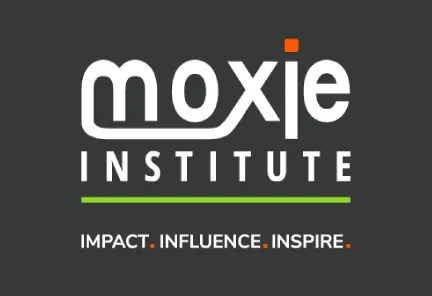In our current era of hyper communication, social media everything, and cyber information overload, it may come as a surprise to you that communication skills are often the weakest in the vast majority of corporations.
In fact, did you know that fear of public speaking is so widespread and gripping that it has a medical name: Glossophobia? And with millennial leaders, aka The Anxious Generation, pouring into the workforce, is there any chance this will get better?
Jerry Seinfeld has insightfully pointed out,
“People’s number one fear is public speaking. Number two is death. Death is number two. Does that sound right? This means to the average person, if you go to a funeral, you’re better of in the casket than delivering the eulogy.”
But the crisis faced by corporations today is no laughing matter.
Though current and future leaders alike will be expected to lead presentations for anyone from peers to clients to board members to larger audiences, there is far more to communication than simply speaking in public. Consequently, communication confidence is one of the top shortcomings admitted by members of today’s workforce.
And according to a recent LinkedIn article,
“The U.S. is short 1.4 million professionals with soft skills, with communication as the #1 skill in demand in all 100 metros analyzed.”
Should we blame it on texting and the digitized world where face-to-face communication is becoming far less common?
Should we blame the anxious, tech-obsessed millennials who now represent the largest generation in today’s workforce?
Or should we just accept that communication skills are not natural, but 100% learned?
Though we adapt to our surroundings and pick up our communication cues from everyone around us – and though some of us stride into the world with a bit more confidence than others – soft skills like communication are both absolutely critical, and – fortunately – completely teachable.
Communication affects every factor that contributes to a company’s bottom line, from employee morale all the way to productivity and profit. We could list the many reasons communication is vital in a novel, rather than an article, but we’ll keep it as short and simple as possible.
Read on to understand why communication is so critical today and what you can do to immediately elevate the skills and confidence of your current workforce.
Table of Contents
ToggleClear Communication Reduces Conflict
Every member of the workforce needs to feel that their needs are being met and that their voice is being heard. Clear communication helps employees to better understand one another, which can prevent misunderstandings, hurt feelings, and avoid the wasted time of conflict.
When teams and individuals check-in collaboratively, at least from time to time, rather than working alone as quiet islands, misunderstandings and assumptions can be significantly reduced. And this doesn’t necessarily mean having formal meetings about recent meetings or checking on action items from the last meeting – it can be as simple as sending a question via an instant chat.
When managers are excellent communicators, gracefully managing conflict, motivating employees, and deftly building relationships, it results in a more open and trusting work environment. This can also head off conflict before it starts.
However, when downward communication is not clear and employees are left to speculate, that’s when the damaging gossip mills can find their fuel.
Everyone in the organization feels more secure when they know exactly where they stand, to the best of the management team’s ability to share. Though not every company prefers complete transparency, there are still effective ways to communicate so that employees are not left to wonder and worry.
Strong Communication Increases Employee Engagement and Morale
We aren’t just speaking about presentation abilities or talking. The ability for coworkers to connect with one another in a meaningful way supports a more satisfying and positive environment at work. This can increase job satisfaction, reduce turnover, and even decrease absenteeism when employees feel valued and look forward to the connections with coworkers.
Well-established lines of communication ensure that everyone at every level feels comfortable sharing their voice with colleagues and superiors alike.
Additionally, when employees feel empowered by managers who are able to listen and respond in kind, this upward communication leads to an increase in employee job satisfaction. We all want to feel heard and appreciated.
Downward communication is just as important. When superiors are open and share information with employees, they feel like an integral part of something bigger. A flow of truthful and updated information allows the workforce to feel important.
Excellent Communication Improves Productivity
Research has shown that effective communication on all levels (peer to peer, employee to supervisor, executive to organization, etc) leads to improvement in overall company performance. Those with the highest performance ratings generally report positive communication from their superiors.
Collaborative communication is an excellent way to increase productivity. Effective teams with the confidence and comfort to communicate honestly will not only implement effective strategies, but they will also brainstorm ways to take their work to the next level, leading to further innovation.
True originality only occurs in an organization where employees can communicate openly without fear of ridicule or retribution. Innovation also requires the grace and respectful confidence to challenge ideas and explore solutions together.
Furthermore, clear communication can help future leaders better understand the business and think of the bigger picture. This can even lead ambitious employees to potentially contribute outside of their job descriptions. This kind of mentality not only boosts productivity in an organization but also benefits the employee’s personal career path, which – again – boosts employee morale and long-term commitment to the organization.
Is that how your organization is running? Is everyone, from the greenest intern to the CFO, natural storytellers, diplomats, and performers? If yes, congratulations!
Otherwise, a communication workshop may be the answer to the issues in your organization that have been keeping you up at night.
In addition to creating the ideal communication settings as detailed above, a communication skills training will also:
Eliminate Conflict and Unite Your Workforce.
Especially if your organization is facing current conflict or tension of any kind, a communication workshop can get everyone speaking the same language again. No matter what the issue, communication shortcomings are typically lurking at the core.
One really exciting aspect of a communication skills training is the ability to directly target any existing conflict within the company. Not only will you share the goals, mission, and values of the organization for them to be directly integrated in the training, but you can even confidentially mention any specific individuals or situations to address – and it will be corrected creatively and discreetly.
While employees are excited about having fun with their coworkers and improving their soft skills in a professional development setting, they will simultaneously rally around the company’s mission.
Improve Employee Morale, Confidence, and Engagement.
Choosing a communication workshop demonstrates that you care about your employees’ professional development and growth towards leadership as much as they do.
Additionally, upskilling the communication abilities of your leaders allows them to truly inspire, motivate, and encourage their teams, building a foundation that holds firm long after the training and improves morale across the organization.
Increase Productivity.
Not only will employee confidence improve, which can result in stronger engagement and better productivity, but when collaboration and open communication are present, so are innovation, increased brand loyalty, and more strategic, efficient approaches.
A communication workshop unites your workforce around all the shared goals for success that strengthen an organization.
Communication skills training can ignite individual careers, whole teams, and the leadership of your entire organization.
Not to mention, every company can benefit from a unified message, increased professionalism, and the strong communication resulting from a professional training that can immediately elevate your brand to a new level of effectiveness, inspiration, and influence.
Fia and Gregg Fasbinder
CEO and President
www.MoxieInstitute.com
hello@moxieinstitute.com
(858) 771-6827










